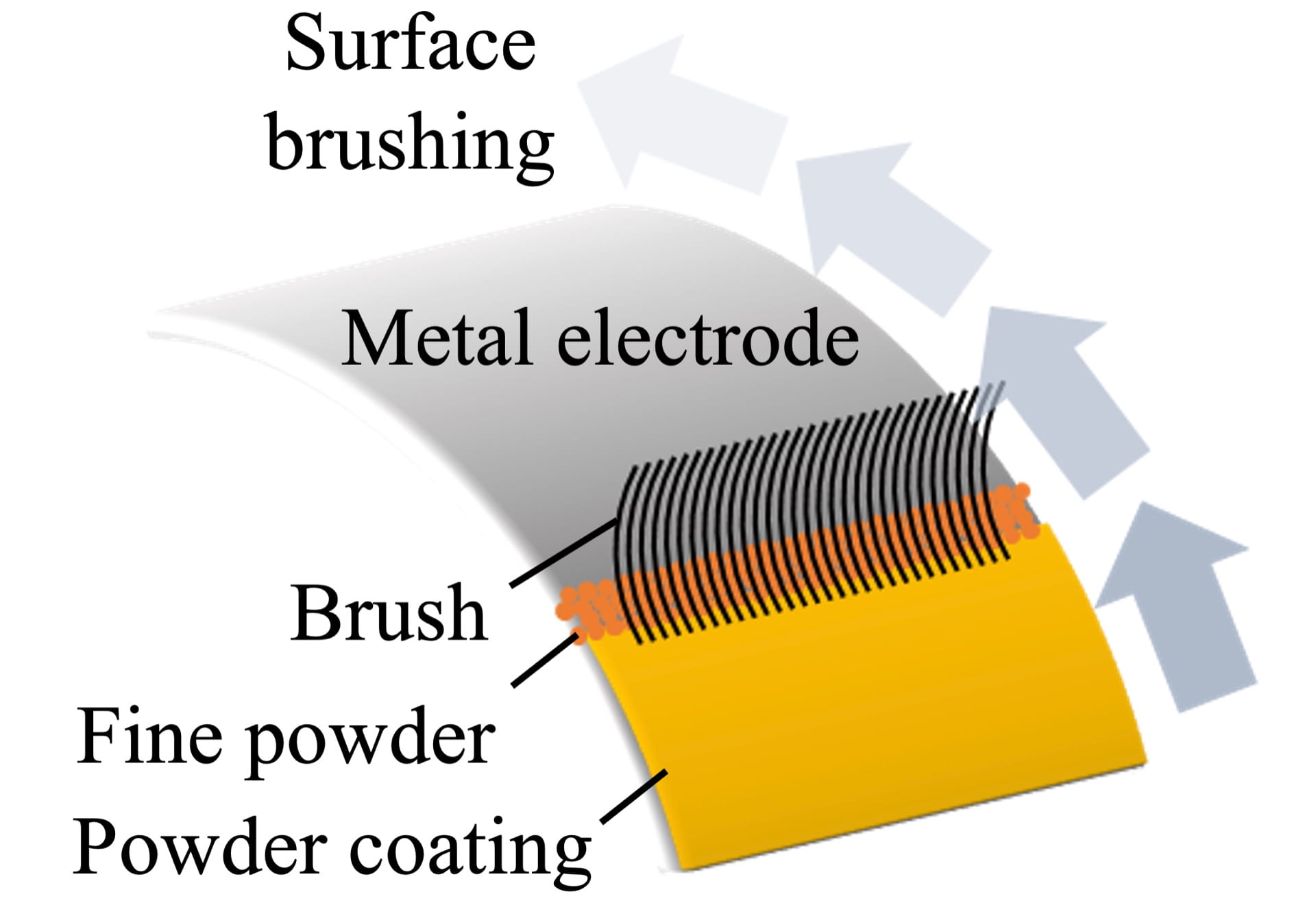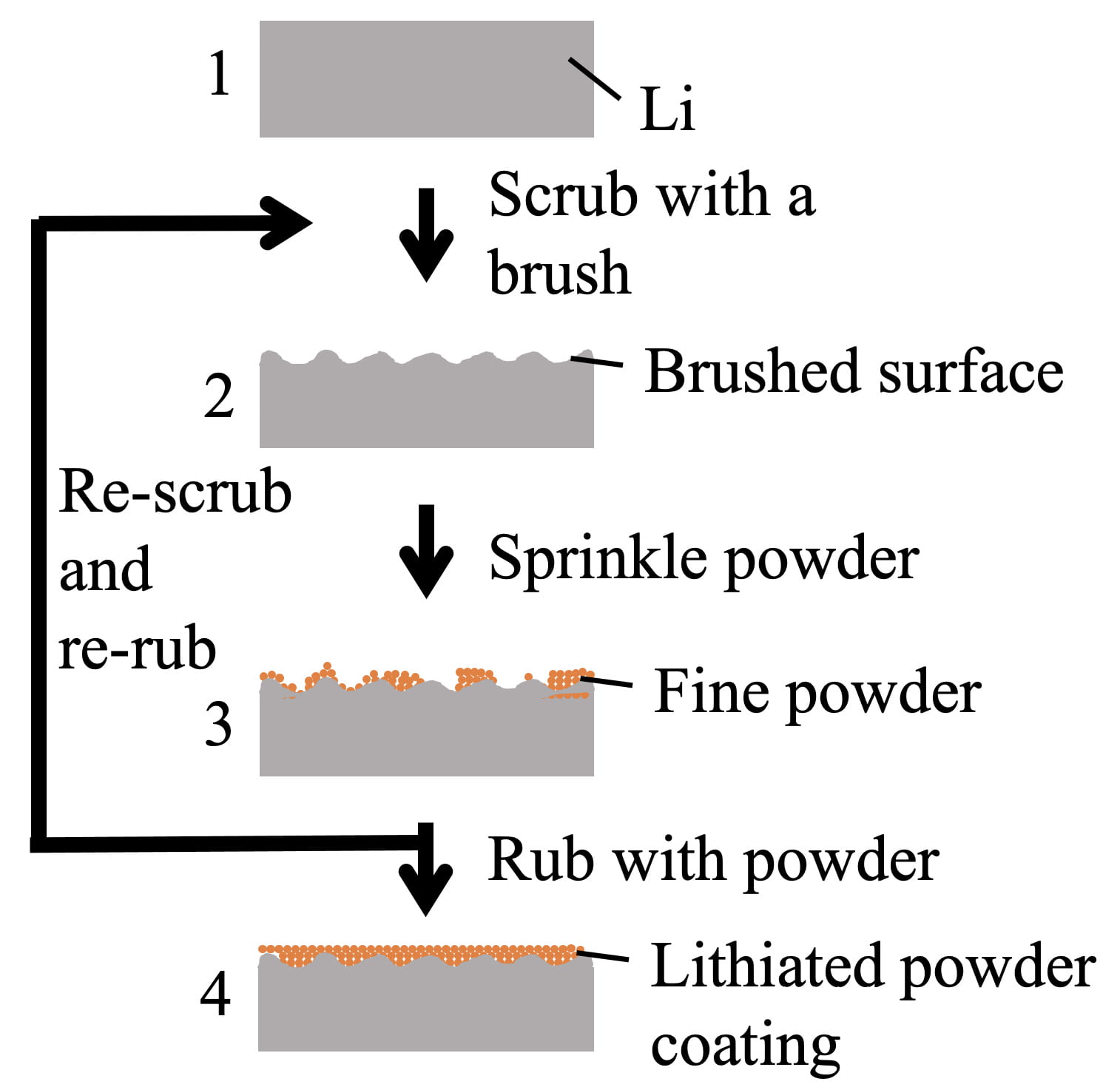| Aug 22, 2022 |
|
(Nanowerk Information) A little bit of brushing will be the secret to creating higher rechargeable lithium batteries.
|
|
The Rice College lab of chemist James Tour launched a method to tune the floor of anodes for batteries by merely brushing powders into them. The powder adheres to the anode and turns into a skinny, lithiated coating that successfully prevents the formation of damaging dendrites.
|
|
A powder of phosphorus and sulfur floor into the floor of lithium steel foil demonstrated its floor power could be tuned with out the necessity for poisonous solvents. Anodes so modified and paired with lithium-iron-phosphate-oxide cathodes in take a look at cells confirmed they retained 70% extra capability after 340 charge-discharge cycles than off-the-shelf batteries.
|
 |
| Brushing steel powders into the floor of lithium anodes exhibits promise to curtail the specter of dendrites that harm recyclable batteries. (Picture: Tour Group, Rice College)
|
|
The research seems in Superior Supplies (“Brushed Metals for Rechargeable Metallic Batteries”).
|
|
“This could simplify the manufacture of high-capacity batteries whereas enormously enhancing them,” Tour stated. “Sanding these powdered solids right into a lithium steel anode dramatically reduces dendrite formation that may quick circuit a battery, in addition to the accelerated consumption of the supplies.”
|
|
Lead writer and Rice graduate pupil Weiyin Chen and his lab colleagues utilized the required elbow grease to check a wide range of powder candidates on their electrodes. They first brushed the floor to offer it texture, then brushed in powder to create the wonderful movie that reacts with the lithium steel and kinds a strong passivation layer.
|
 |
| A several-step course of with out poisonous solvents that provides a lithiated movie to the anodes of lithium-ion batteries guarantees to forestall the formation of damaging dendrites. (Picture: Tour Group, Rice College)
|
|
Chen and co-author Rodrigo Salvatierra, a former postdoctoral researcher and now an instructional customer within the Tour lab, constructed take a look at batteries and decided the handled anodes retained ultralow polarization — one other damaging attribute for lithium-ion batteries — for greater than 4,000 hours, about eight occasions longer than naked lithium anodes.
|
|
Tour stated the powders successfully tune the floor power of the electrodes, making for a extra uniform habits throughout the fabric.
|
|
“This supplies a steel composite floor that forestalls the lack of lithium steel from the anode, a typical drawback in lithium steel batteries,” Tour stated. “Lithium steel batteries far exceed the capability of conventional lithium-ion batteries, however the lithium steel is commonly troublesome to repeatedly recharge.”
|
|
“The powder on the lithium steel floor produces a man-made passivation layer that improves the steadiness all through the charge-discharge cycles,” Chen stated. “Utilizing this brush-on technique, the steel floor is stabilized in order that it may be safely recharged.”
|
 |
| Scanning electron microscope photos present a sequence of lithium foils handled by scientists at Rice College. Brushing steel powder into lithium anodes for rechargeable batteries can stop the formation of damaging dendrites. The size bars signify 100 microns. (Picture: Tour Group, Rice College)
|
|
To indicate the method might have wider software, the lab additionally floor powder right into a sodium electrode and found the method enormously stabilized its voltage overpotential.
|
|
The research aligns with the current discovery by Tour and Rice mechanical engineer C. Fred Higgs III that sanding sure powders into surfaces could make them superhydrophobic, or extremely immune to water.
|





